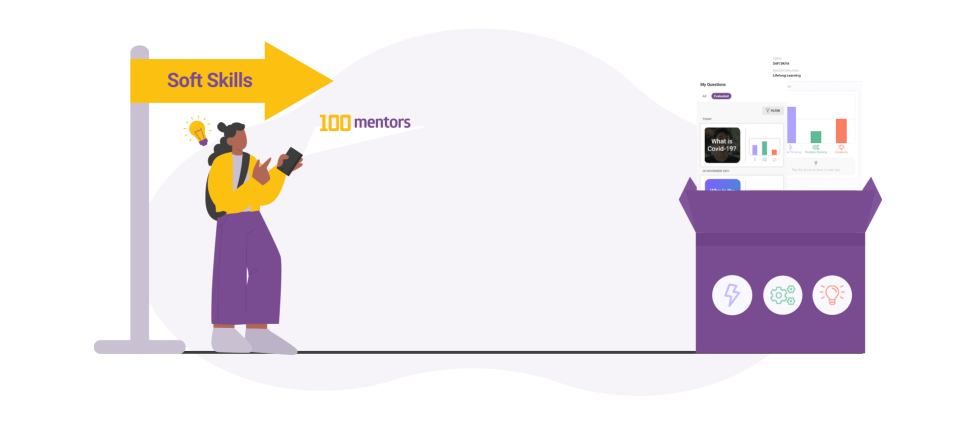Last Updated on August 30, 2022
There is much talk about soft skills these days. Most of us sense their importance and would like to invest in them, but the landscape is cloudy (Cinque, 2016). First of all, the very definition of soft skills is still being debated. The only consensus so far is on what they are not (Claxton, Costa, & Kallick, 2016):
- any objective, clearly defined knowledge and ability we may have that
- we can easily prove by using hard evidence.
The main characteristic of all soft skills is that they aren’t limited to a certain area of our everyday activities. Several soft skills are more relevant in educational, vocational, or personal contexts. Yet there are some soft skills that seem to fit on almost every list (e.g., Chu et al., 2016; Cinque, 2016): communication, collaboration, critical thinking, problem solving, and creativity – to name a few.
Soft skills are “soft” not because they are less important than our hard skills. The distinction lies mostly in the fact that we can rarely find any tangible evidence that we have them at all. Therefore, our focus shouldn’t just be on developing our soft skills but also on discovering ways to prove we’ve mastered them.

In this blog post, we set out to see which soft skills are most valuable to bet on, how to develop them, and how there might just be a way to track the soft skills we’re developing!
Which soft skills are worth targeting?
To make soft skills less vague as a concept and more concrete as a personal asset, we should decide where our focus is. Soft skills’ lists are many and long and all the components included may be just as valuable; however, it’s pointless to attempt addressing them all at once.
Where to start? Choose soft skills at the intersection of your needs as learners and requirements as professionals. When it comes to learning, and especially inquiry-based learning, we can start with three skills that can change the way we approach, comprehend, and communicate our learning objectives: critical thinking, problem solving, and creativity (Chu et al., 2016).

It’s hardly surprising that these three soft skills are also listed among the most wanted “job skills” and part of what the companies include in their “upskilling programs” for their workforce (World Economic Forum, 2020).
Why is asking questions good for your soft skills?
A more than common activity, gaining in popularity right now, is questioning. Once upon a time, questions were all about bringing knowledge in. But, with knowledge easily accessible the question now is: how can we filter it, process it, and make something new with it? Our questions may demonstrate our capacity to do all of these things.
Asking questions, and progressively asking more wonderment questions, may be the fastest and easiest way to cultivate our critical thinking, problem solving, and creativity skills. Our questions can vividly showcase these skills:
- Critical Thinking – showing our deep understanding of a topic and our confidence in questioning its limits,
- Problem Solving – presenting our reasoning and exploring possible solutions, and
- Creativity – putting forward different, original, and innovative views of the topic.
At last, your soft skills can be evaluated!
And yet one problem remains: how can we prove that we have in practice developed these key soft skills? On 100mentors, we gather hard evidence for soft skills through the Question Evaluation feature: you ask questions and the mentors on the platform evaluate your soft skills and answer your questions so they give you enough fuel to continue your soft skills’ training with more and more wonderment questions.

If you master them sufficiently enough and you score at least 60% in each skill, you can claim your 100mentors Certificate on Soft Skill Training for learners after 3 initial questions and 3 follow-up questions in any Topic available to you!
And not just for you! You can introduce this tangible process to your institution (e.g., school, university) or organization (e.g., company, enterprise) so all members of the learning community share questions, interact with mentors, and have their soft skills developed and certified!

Subscribe to our blog so you can be among the first to find out about our practical tips and examples on how to improve your critical thinking, problem solving, and creativity one question at a time!
Sources
Chu, S. K. W., Reynolds, R. B., Tavares, N. J., Notari, M., & Lee, C. W. Y. (2016). 21st century skills development through inquiry-based learning: From theory to practice. In 21st Century Skills Development Through Inquiry-Based Learning: From Theory to Practice.
Cinque, M. (2016). “Lost in translation”. Soft skills development in European countries. Tuning Journal for Higher Education, 3(2), 389-427.
Claxton, G., Costa, A. L., & Kallick, B. (2016). Hard thinking about soft skills. Educational Leadership, 73(6), 60–64.Whiting, K. (2020). What are the top 10 job skills for the future? World Economic Forum. https://www.weforum.org/agenda/2020/10/top-10-work-skills-of-tomorrow-how-long-it-takes-to-learn-them/


1 comments On Are you asking questions? You’re on the right path to improving your soft skills
Soft Skills associate to how you work or behave. The main categories of soft skills that employers look for in job candidates are interpersonal skills and communication skills. Soft skill is an important way to succeed for most employers. All jobs require employees to engage with other employees in some or the other way.